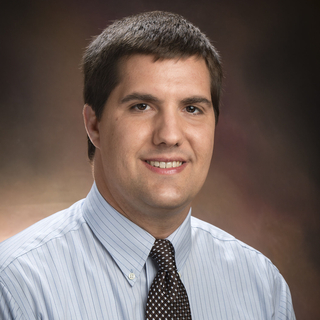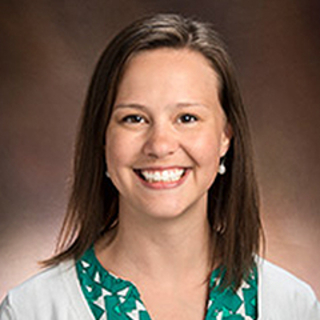Researchers at Children’s Hospital of Philadelphia revealed insights into optimizing chimeric antigen receptor T cell (CAR-T) therapy for solid pediatric tumors, offering a more complete understanding of how tumor biology and immunological barriers affect efficiency and safety. In two recent studies published in Molecular Therapy and Neuro-Oncology, researchers modified CAR-T cell activity to effectively target two types of tumors – neuroblastoma and diffuse midline glioma (DMG) – while improving efficacy and minimizing side effects.
In the Molecular Therapy study, researchers explored the reasons behind the frequent resistance of neuroblastoma to CAR-T cell therapies. Although the earlier clinical translation of CAR-T cells that target glypican-2 (GPC2), a protein overexpressed in certain cancers, showed promise, those efforts were based primarily on models lacking fully functional immune systems. To help bridge this gap, the team created preclinical test subjects with a fully functioning immune system and found that the tumor microenvironment played a key role in suppressing CAR-T cell efficacy. Immune profiling revealed that GPC2 CAR-T cells had poor intratumoral persistence, meaning that the CAR-T cells did not remain within the tumor for long enough to achieve their maximum therapeutic impact.
To counter immune suppression, the researchers developed GPC2 CAR-T cells that can better overcome the suppression. They added a component called C-X-C chemokine receptor type 2 (CXCR2), a protein-coding gene that plays a significant role in the immune system and various diseases. This component acted as a guide, directing CAR-T cells toward the tumor and helping to eliminate immune cells toxic to GPC2 CAR-T cells. As a result, these enhanced CAR-T cells are more successful in reaching the tumor and reduce the level of harmful cells that hinder the immune response, overall leading to better cancer-fighting effects.

“The study underscores the critical value of using models with a healthy immune system to pinpoint essential CAR escape mechanisms in solid tumors,” said Kristopher Bosse, MD, an attending physician with the Division of Oncology at Children’s Hospital of Philadelphia. “This approach is vital as we continue to devise biologically balanced enhancements to CAR-T cell therapies.”
In the Neuro-Oncology journal study, researchers focused on a different set of challenges, those posed by CAR-T therapy that targets GD2, a molecule found on the surface of certain tumors, for high-grade pediatric brain tumors, including DMG. While GD2 has emerged as a viable target, permanent CAR-T cells created through viral vectors have led to significant side effects in animals and human patients. To address this, researchers developed a transient form of CAR-T cells using mRNA technology, enabling short-term expression and reducing the risk of prolonged immune activation in sensitive brain tissues.
Researchers tested this method in cell cultures using organoids, tiny balls of tumor that can be grown right after the tumor is removed from the patient, as well as live DMG tumor samples. They discovered that the GD2-targeted CAR-T cells were very effective at killing tumors initially but naturally reduced their activity after nine days. This short span of cell toxicity allowed for multiple, adjustable doses without causing neurological side effects. The researchers noted that this approach could be particularly important for treating tumors in sensitive brain areas like the pons and thalamus.

“Our findings demonstrate that CAR-T cell therapy is not a one size fits all approach, especially in pediatric oncology where tumor biology and treatment tolerability are uniquely complex,” said Jessica B. Foster, MD, a lead study author and attending physician in the Division of Oncology at Children’s Hospital of Philadelphia. “It’s imperative that we continue to pioneer new ways of making CAR-T therapy safer and more effective for children with aggressive cancers.”
Dr. Foster’s study was funded by the Department of Defense (W81XWH-21-1-0221), National Institute of Health (5 K08 CA263179) and (5U2CHD109731-08), Matthew Larson Foundation, Liv Like a Unicorn, Greyson Saves Foundation, Kourtney Rose Foundation and October Saves.
Dr. Bosse’s research was funded by an American Association of Cancer Research (AACR)-AstraZeneca Career Development Award for Physician-Scientists, in Honor of José Baselga, Alex's Lemonade Stand and National Cancer Institute grants (K08 CA23022) and (R37 CA282041).
Bosse et al. “Reprogramming the neuroblastoma tumor immune microenvironment to enhance GPC2 CAR T cells.” Molecular Therapy. Online May 27, 2025. DOI: 1016/j.ymthe.2025.05.025.
Foster et al. “Transient mRNA CAR T cells targeting GD2 provide dose-adjusted efficacy against diffuse midline glioma and high-grade glioma models.” Neuro-Oncology. Online May 24, 2025. DOI: 10.1093/neuonc/noaf115.
Featured in this article
Experts
Specialties & Programs
Research
Researchers at Children’s Hospital of Philadelphia revealed insights into optimizing chimeric antigen receptor T cell (CAR-T) therapy for solid pediatric tumors, offering a more complete understanding of how tumor biology and immunological barriers affect efficiency and safety. In two recent studies published in Molecular Therapy and Neuro-Oncology, researchers modified CAR-T cell activity to effectively target two types of tumors – neuroblastoma and diffuse midline glioma (DMG) – while improving efficacy and minimizing side effects.
In the Molecular Therapy study, researchers explored the reasons behind the frequent resistance of neuroblastoma to CAR-T cell therapies. Although the earlier clinical translation of CAR-T cells that target glypican-2 (GPC2), a protein overexpressed in certain cancers, showed promise, those efforts were based primarily on models lacking fully functional immune systems. To help bridge this gap, the team created preclinical test subjects with a fully functioning immune system and found that the tumor microenvironment played a key role in suppressing CAR-T cell efficacy. Immune profiling revealed that GPC2 CAR-T cells had poor intratumoral persistence, meaning that the CAR-T cells did not remain within the tumor for long enough to achieve their maximum therapeutic impact.
To counter immune suppression, the researchers developed GPC2 CAR-T cells that can better overcome the suppression. They added a component called C-X-C chemokine receptor type 2 (CXCR2), a protein-coding gene that plays a significant role in the immune system and various diseases. This component acted as a guide, directing CAR-T cells toward the tumor and helping to eliminate immune cells toxic to GPC2 CAR-T cells. As a result, these enhanced CAR-T cells are more successful in reaching the tumor and reduce the level of harmful cells that hinder the immune response, overall leading to better cancer-fighting effects.

“The study underscores the critical value of using models with a healthy immune system to pinpoint essential CAR escape mechanisms in solid tumors,” said Kristopher Bosse, MD, an attending physician with the Division of Oncology at Children’s Hospital of Philadelphia. “This approach is vital as we continue to devise biologically balanced enhancements to CAR-T cell therapies.”
In the Neuro-Oncology journal study, researchers focused on a different set of challenges, those posed by CAR-T therapy that targets GD2, a molecule found on the surface of certain tumors, for high-grade pediatric brain tumors, including DMG. While GD2 has emerged as a viable target, permanent CAR-T cells created through viral vectors have led to significant side effects in animals and human patients. To address this, researchers developed a transient form of CAR-T cells using mRNA technology, enabling short-term expression and reducing the risk of prolonged immune activation in sensitive brain tissues.
Researchers tested this method in cell cultures using organoids, tiny balls of tumor that can be grown right after the tumor is removed from the patient, as well as live DMG tumor samples. They discovered that the GD2-targeted CAR-T cells were very effective at killing tumors initially but naturally reduced their activity after nine days. This short span of cell toxicity allowed for multiple, adjustable doses without causing neurological side effects. The researchers noted that this approach could be particularly important for treating tumors in sensitive brain areas like the pons and thalamus.

“Our findings demonstrate that CAR-T cell therapy is not a one size fits all approach, especially in pediatric oncology where tumor biology and treatment tolerability are uniquely complex,” said Jessica B. Foster, MD, a lead study author and attending physician in the Division of Oncology at Children’s Hospital of Philadelphia. “It’s imperative that we continue to pioneer new ways of making CAR-T therapy safer and more effective for children with aggressive cancers.”
Dr. Foster’s study was funded by the Department of Defense (W81XWH-21-1-0221), National Institute of Health (5 K08 CA263179) and (5U2CHD109731-08), Matthew Larson Foundation, Liv Like a Unicorn, Greyson Saves Foundation, Kourtney Rose Foundation and October Saves.
Dr. Bosse’s research was funded by an American Association of Cancer Research (AACR)-AstraZeneca Career Development Award for Physician-Scientists, in Honor of José Baselga, Alex's Lemonade Stand and National Cancer Institute grants (K08 CA23022) and (R37 CA282041).
Bosse et al. “Reprogramming the neuroblastoma tumor immune microenvironment to enhance GPC2 CAR T cells.” Molecular Therapy. Online May 27, 2025. DOI: 1016/j.ymthe.2025.05.025.
Foster et al. “Transient mRNA CAR T cells targeting GD2 provide dose-adjusted efficacy against diffuse midline glioma and high-grade glioma models.” Neuro-Oncology. Online May 24, 2025. DOI: 10.1093/neuonc/noaf115.
Contact us
Jennifer Lee
Cancer Center